QuestionQUESTION: Hi,
I have a spayed english angora doe, she is approximately 7 years old.She has had what the vet thinks is Pasteurellose for a while now.It has been mainly in her respiratory tract but once it had gotten into her eyes.She always responds well to treatment with Chlorpalm 250 for 14 days, twice a day.Last treatment went well, she was fully recovered after only 4 days but then after the 8th day of treatment she started kinda wheezing again but not much, not always. Now, 14 days after the last dose was administered, she is breathing a bit hard and makes noises especially when I hold her in my arms on her back to inspect her nose...She is not lethargic but I have seen her more active, she eats normally and everything is ok in the poop department.Her nose and eyes are co,pletely dry.
I am planning to make an appointment with the vet this week and I was tinking of suggesting a round of Baytril, or maybe she should be on long term antibiotics ? .I just want to do what is the best for everyone. Your advice has always been sound.Let me know if you need more info ( or if I was not clear enough ).Thank you so much for sharing your experience it does make a difference.
ANSWER: Dear Naomi,
One of the most common problems faced by a bunny caregiver with a bun older than 5 years or so is chronic upper respiratory infection. You might be surprised to learn that this problem is usually *dental* in origin.
As a bunny ages, and if she is not eating enough long fiber food (grass hay), the teeth do not move properly (or so the theory goes), and the bases of the teeth (they're not true roots, but I'll just call them "roots" for now) begin to elongate backwards, into the skull. Over time, these elongated roots start to impinge on the tear ducts and maxillary sinuses, narrowing them and reducing air flow. This sets up a hospitable environment for opportunistic bacteria to grow, and presto! You have chronic upper respiratory infection (URI).
Antibiotics will knock it back a bit, but when they're stopped, the bacteria re-grow, and sometimes having been selected for resistance to the antibiotics to which they were previously exposed. So you're kind of in a tough spot.
There are drastic surgical options, such as a rhinotomy to open the sinuses, or removal of infected molars or premolars. But there are relatively few vets who really know how to do these delicate surgeries (though more are learning about these options all the time).
So while long-term antibiotics might help keep bun comfortable, they won't be a true cure. You'll have to make the decision about whether to keep her on them, or to wait until it really becomes necessary for her comfort and health.
Hope this helps.
Dana
---------- FOLLOW-UP ----------
QUESTION: Thank you for your response.I would like to know though, could this happen even if the bunny has had hay and greens every day of her life ?
I will have her teeth checked for sure though.
What you are describing is exactly what happened to my guinea pig.More of the same antibiotic just could not cure her even though she was on the brink of being cured every time...
H.A.R.E is a great programm by the way, I am glad to be of help.
AnswerHi, Naomi
Yes, a bunny can develop dental disease even if she has had greens and hay all her life. Sometimes it's congenital, and sometimes other environmental factors can contribute.
So I'd get bun to the vet for a full dental check, just to be sure.
Hope this helps, and thank you for supporting H.A.R.E. :)
Dana

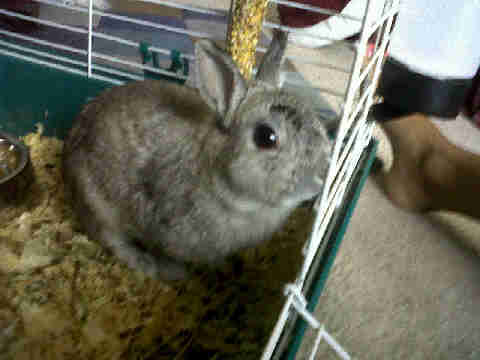 Is my newly found rabbit a pet or wild rabbit?
Question
Elfie
Hi, Im hoping you can help me figure out
Is my newly found rabbit a pet or wild rabbit?
Question
Elfie
Hi, Im hoping you can help me figure out
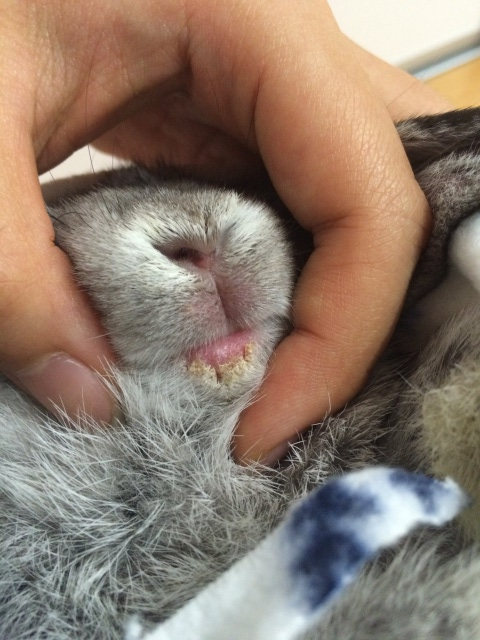 Thick hard dry skin on rabbits chin
Question
Dry Skin
Hello Pam
Ive recently bough
Thick hard dry skin on rabbits chin
Question
Dry Skin
Hello Pam
Ive recently bough
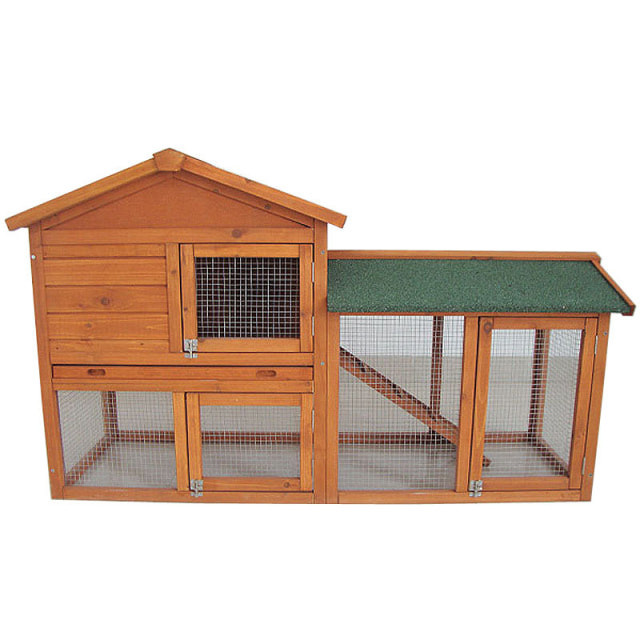 Rabbits and foxes
QuestionQUESTION: Hello, Im interested in getting rabbi
Rabbits and foxes
QuestionQUESTION: Hello, Im interested in getting rabbi
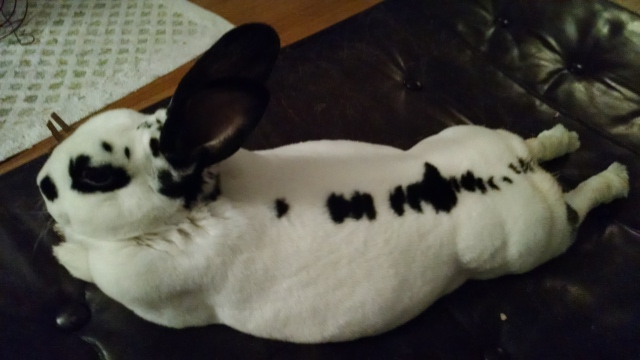 Is my bunny the right coloring for genetic megacolon?
Question
Rabbits coloring
My rabbit is being tre
Is my bunny the right coloring for genetic megacolon?
Question
Rabbits coloring
My rabbit is being tre
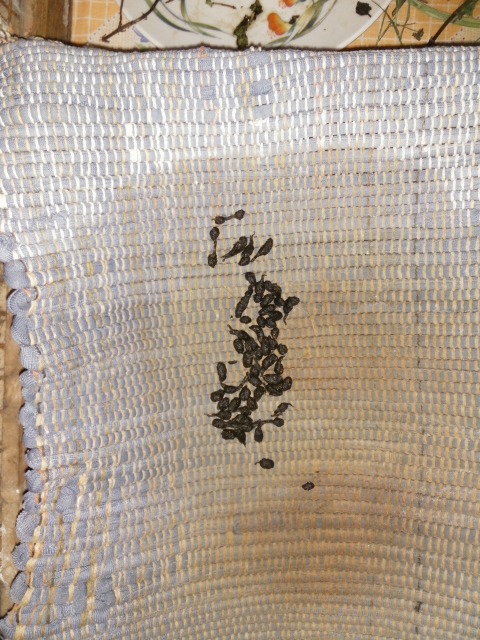 Spencers Update!!!
Questionpoop
poop
QUESTION: Hi Dana Madam
Spencers Update!!!
Questionpoop
poop
QUESTION: Hi Dana Madam